Perceptions of Corporate Social Responsibility during the Covid-19 Epidemic
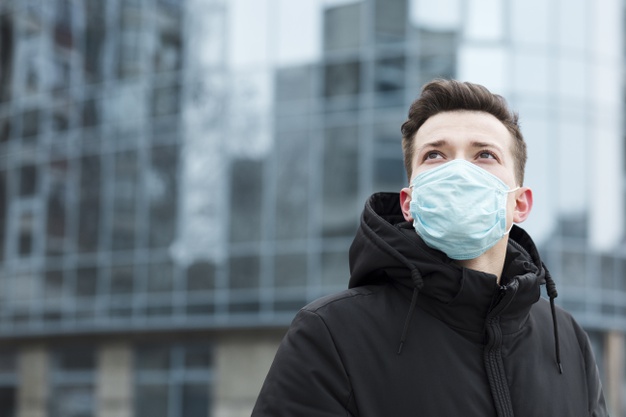
By Viktar Fedaseyeu
Containing the Covid-19 epidemic and minimising its human and economic costs is perhaps the most vital task facing our society today, and accomplishing this task requires the joint effort of governments, businesses, and individual citizens. But how should the responsibility to combat the epidemic be split between these parties and whose interests should be prioritised? Moreover, should firms look after the interests of their shareholders at the expense of the employees? Or should they prioritise the interests of the broader communities in which they operate? Finally, how do firms’ actions to combat Covid-19 affect their prospects in the marketplace? To help answer these questions, this article reports some insights from an experimental study involving participants from the United States recruited on Amazon’s Mechanical Turk crowdsourcing platform.
Firms expected to play an active role
The first insight of the study is that firms are expected to play an active role in the fight against Covid-19. While most study participants believe that the primary responsibility to combat the epidemic lies with the central government (see Fig. 1), they also believe that firms should do their part. When asked if businesses have an ethical responsibility to help combat the coronavirus epidemic, 94.1% of 1,021 study participants answer affirmatively (see Fig. 2). While these findings are not entirely surprising, they are nonetheless informative because the emergence of Covid-19 had nothing to do with the firms’ operations. It appears, therefore, that firms’ corporate social responsibility (CSR) extends far beyond their business operations: At least in the case of Covid-19, firms are expected to respond to societal challenges even if those challenges arise for reasons entirely outside firms’ control.
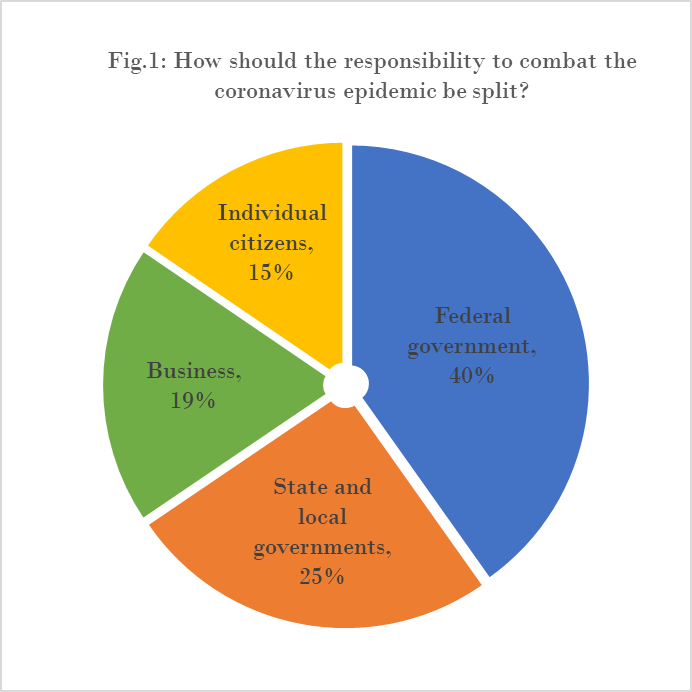
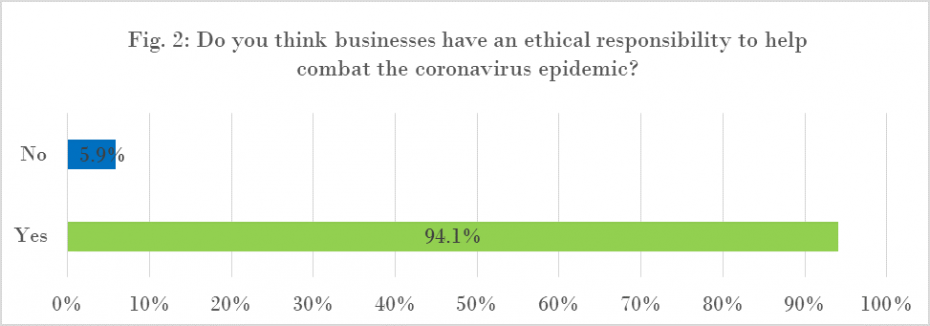
Firms expected to look out for employees and the broader community
The second insight is that firms are expected to behave proactively and adopt measures to combat the epidemic even if these measures are not mandated by the government. In doing so, firms are expected to look out for the interests of their employees and the broader community affected by Covid-19, in addition to the interests of their owners/shareholders (see Fig. 3).
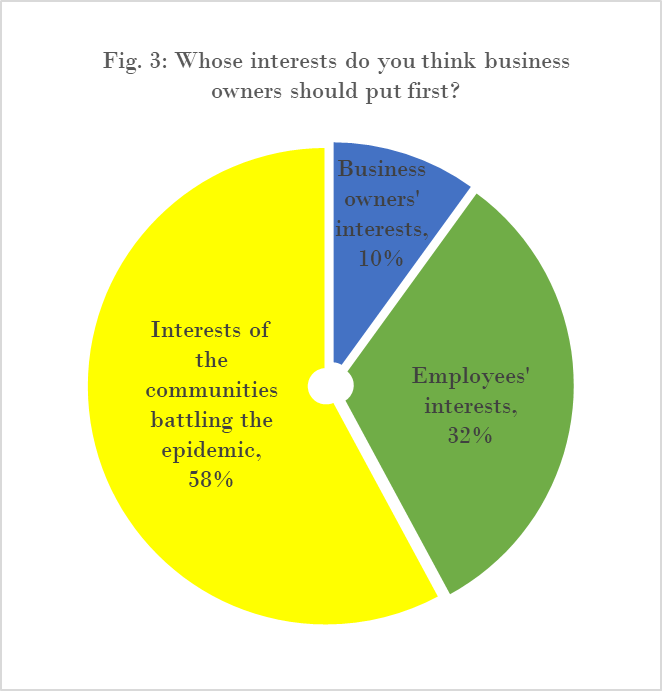
Consumers and employees willing to help shoulder the burden
The third insight is that consumers and employees are willing to help businesses shoulder some of the epidemic’s economic burden. Firms are not expected to protect their employees at all costs, but they are expected to be sensitive to the economic hardship that the employees may face if they are laid off. In fact, firms whose behaviour is seen as callous are likely to lose out in the marketplace. This latter insight comes from an experimental setup in which study participants were asked to express their opinion about firms’ actions during the Covid-19 epidemic. Some participants were provided with examples of firms prioritising the interests of their owners (e.g., by laying off a large share of their workforce), while other participants were provided with examples of firms doing their best to protect the employees. The participants were then asked to state whether they thought the firms’ behaviour was responsible or irresponsible and whether they would be willing to buy these firms’ products. The participants who viewed the firms’ behaviour as responsible were fourteen times more likely to say that they would be more willing to buy these firms’ products than the participants who viewed the firms’ behaviour as irresponsible (28% versus 2% — see Fig. 4).
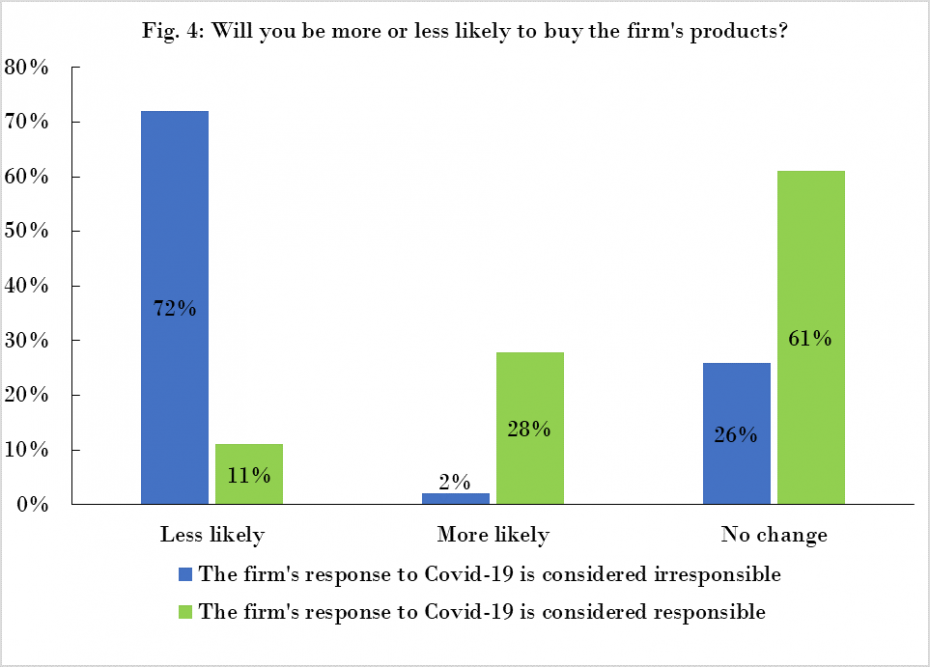
Knowing someone who has tested positive matters
Finally, the perception of firms’ role in fighting the Covid-19 epidemic depends strongly on whether the participant knows someone who has tested positive for the virus. While only a minority of people in the study (7.9%) report knowing someone who has tested positive, they appear to care more strongly about the role of businesses in fighting the epidemic (97.5% of them report that it is firms’ ethical responsibility to help combat the epidemic). Since the number of people directly affected by the virus is likely to grow over time, the importance of firms’ response to the epidemic is likely to increase as well.
Conclusion
Overall, this research provides some early insights into people’s attitudes toward firms’ responsibility to fight the Covid-19 epidemic. While firms are expected to play an active role in fighting the epidemic, they are not expected to supplant the efforts by the government. Furthermore, firms are unlikely to suffer major reputational costs for laying off their employees as long as the layoffs are perceived as an inevitable consequence of the epidemic.
Viktar Fedaseyeu is an Associate Professor of Finance at CEIBS. For more on his teaching and research interests, please visit his CEIBS faculty profile here.









